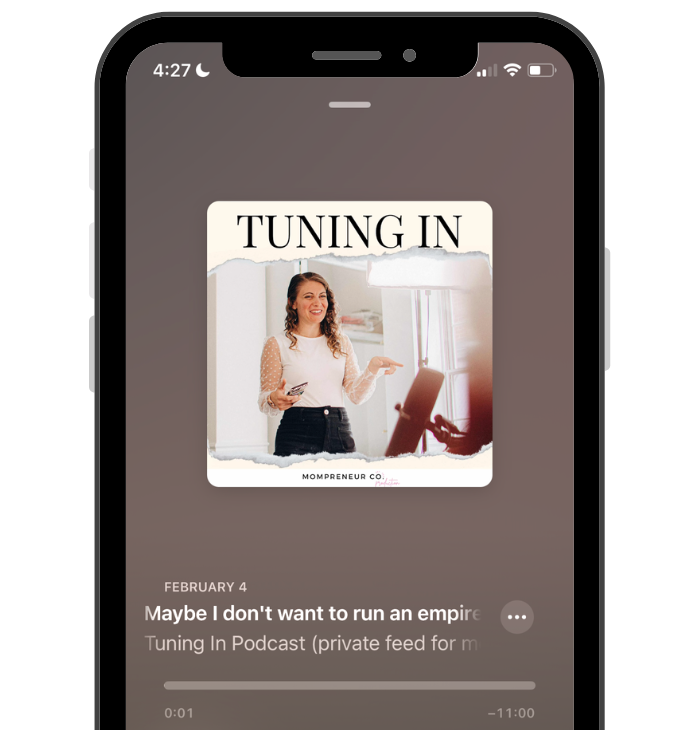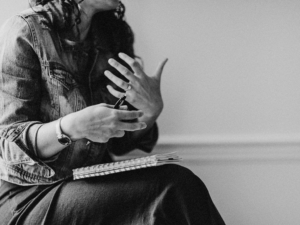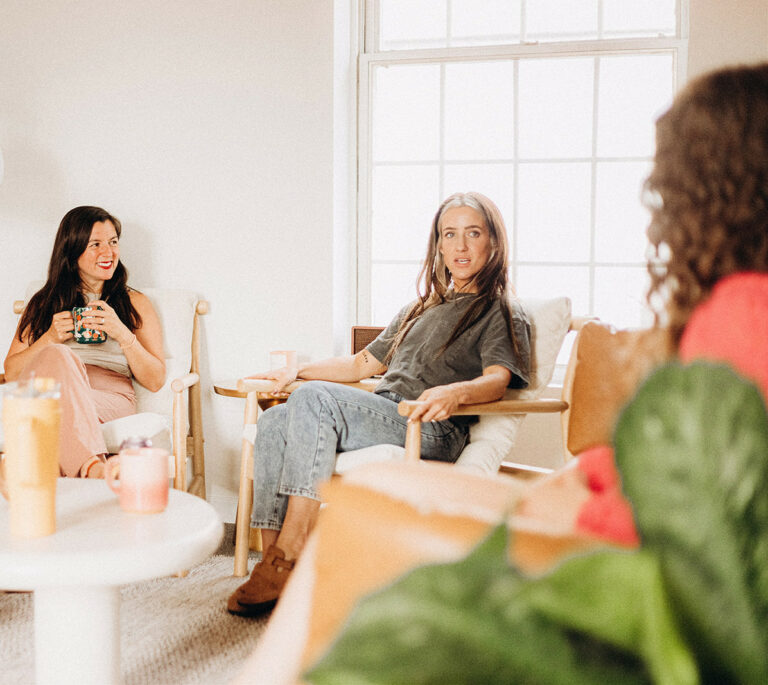I recently met Erin Galloway on Substack and thought- you’ve got to meet her too. She’s a Cleveland Mom living in Cincinnati, Podcast host of the Press Publish Podcast + Substack and Owner of Habitize Publishing for self-published authors.
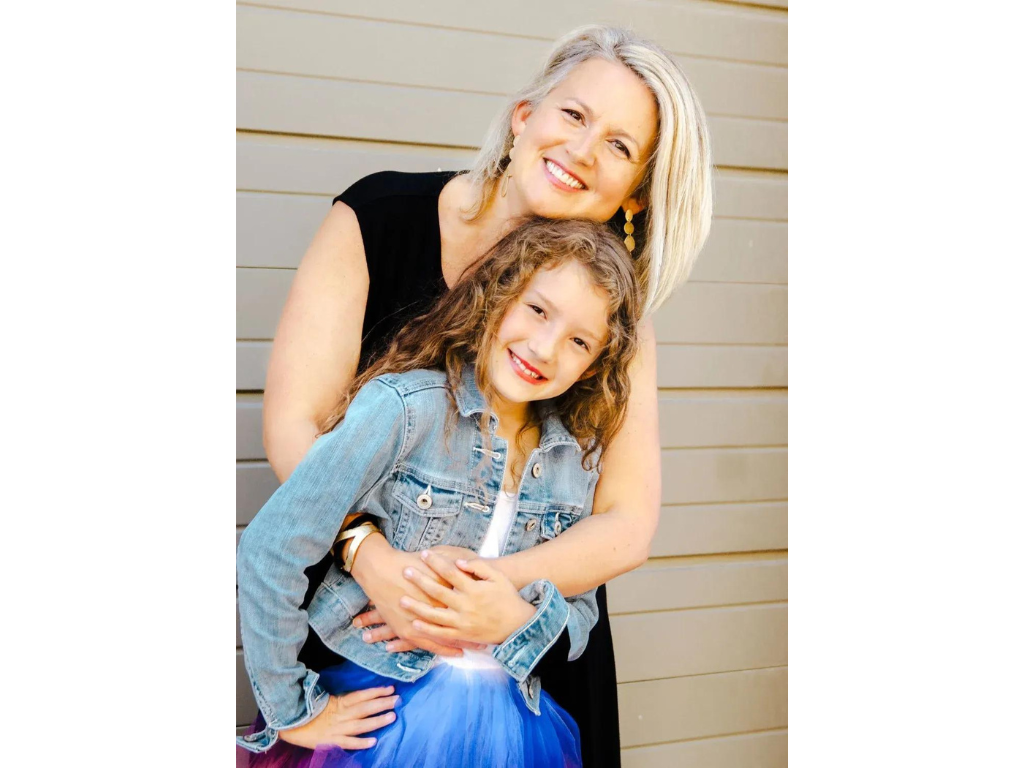
The Intersection of Podcasting + Self-Publishing
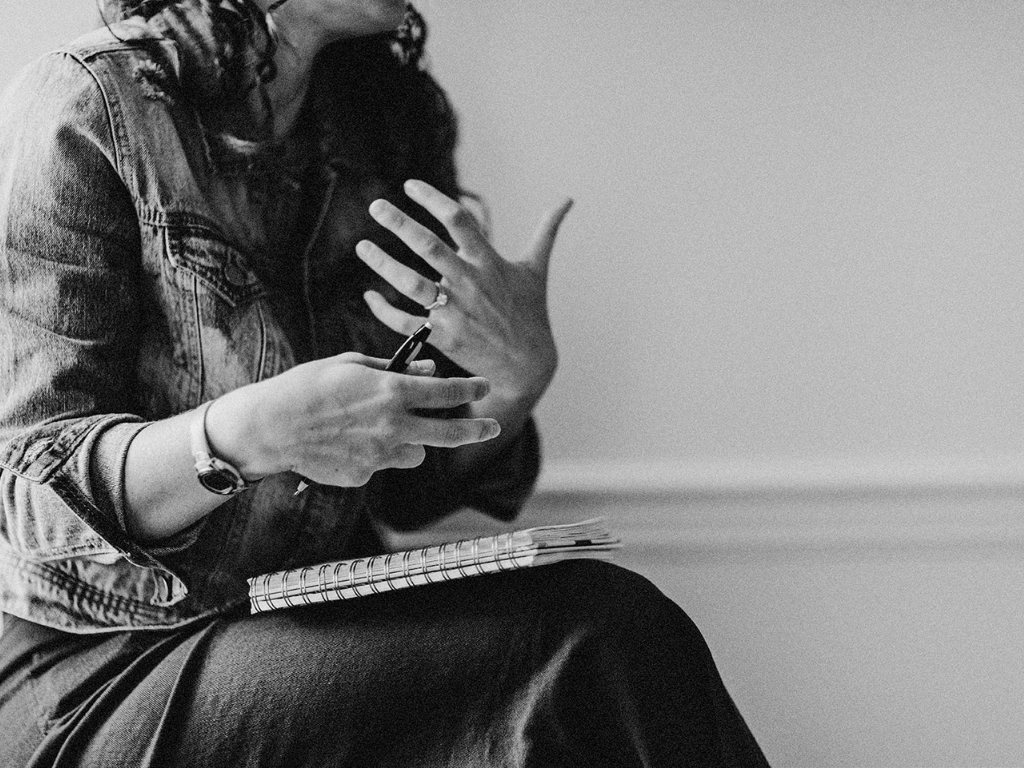
Maybe you feel this way too, but we noticed Podcasting + Publishing a book, tend to live on that same Bucket List us Mompreneurs have. So we sat down to talk through the intersection of the two and how doing both in sync can benefit each other. Here’s everything you need to know about writing a book and marketing it through podcasts:
Writing a book and launching or being on a podcast can feel like this big, very important thing and we don’t even know where to begin. With publishing, we know of the self-publishing route, but we don’t really know anything about it. We know about publishing houses and think “when I do XYZ then that will be an option.” Not knowing any of the behind the scenes. And most of us don’t even know that hybrid is an option.
Yes- And I find a lot of authors do not leverage podcast guest interviews for part of their book marketing strategy. I think a lot of first time authors don’t know podcasters, so it feels like a very removed community to just reach out to. I think many are intimidated either being on screen or talking live.
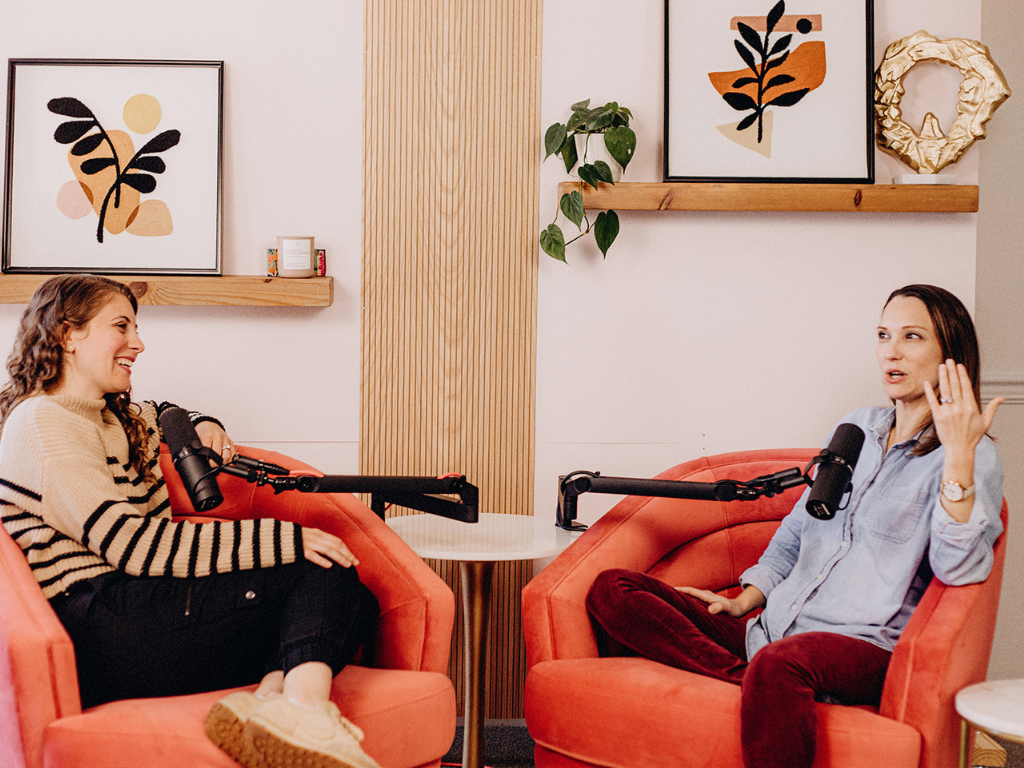
And so it feels like that’s just another big hurdle to get over when they already have to figure out social media and book events etc.
We know there’s these paths we can go down but we stop ourselves, thinking: “it’s going to be a lot of work.” And so it becomes a “down the line” thing. We keep writing in our Google doc when those ideas come up but until we either have an intuitive hit like, now is the time to bring it to life, or hear conversations like this to see, oh, it is possible- we wait to take that first step.
What if we told you, working on one of these projects actually could fuel the other?
Getting Started with Self-Publishing
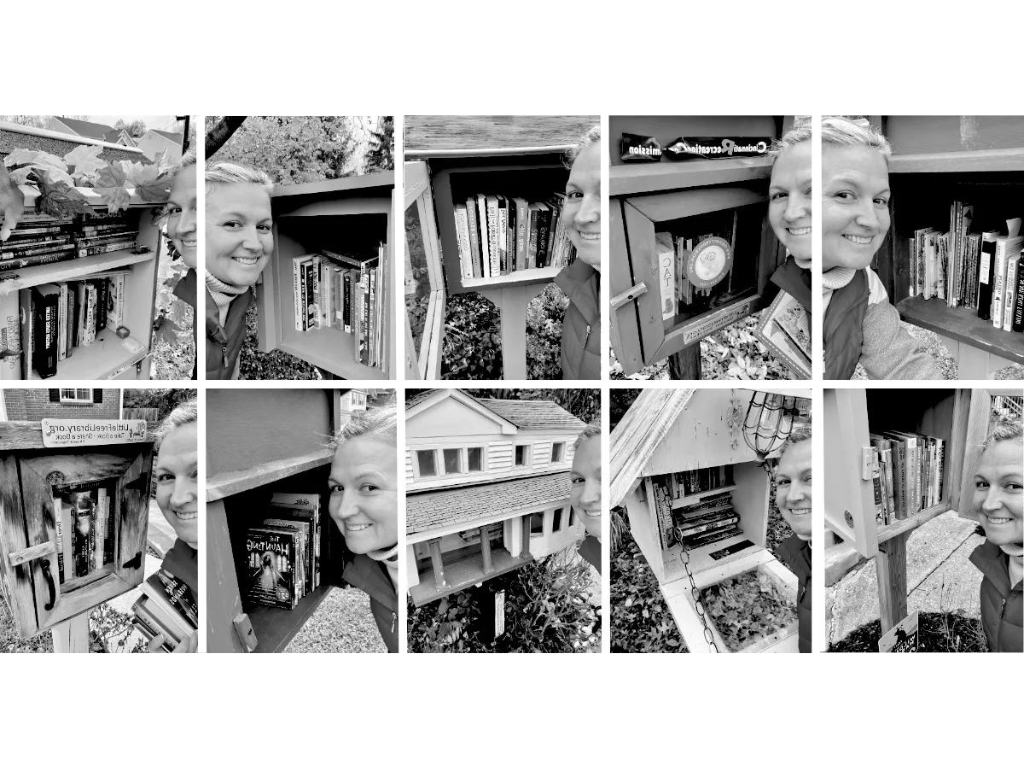
I hear that. As a mom, trying to do a podcast and a book, different things are hitting their high points at different times. I find that a lot of good writers with good content put pressure on themselves to create this impressive thought leadership, life transformational book, that’s going to be either all of that for a large group of people or “I’m not going to pursue it at all.”
I encourage people to find that space in the middle – that uncovers their habits related to writing.
I’m sure you’ve seen this in podcasting too. There are some really good people who could have had an awesome podcast. But they couldn’t quite put a system together and get a routine and a habit around it. They had 10 great episodes, but man, 12 through 15 became a beast and so they were like, maybe this isn’t for me and they moved on.
I really encourage aspiring first time authors to put a book or some form of consistent writing out there because that is the only way that you’re going to learn.
If you keep taking action, small actions, it will happen. You will get better. And you’ll learn the most from that pressing publish moment or going on your first podcast.
You have a lot of reasons not commit to the project. It can feel like a hamster wheel. But your first episode or writing is what gets you to your hundredth. It might not be your favorite, but putting stuff out there allows you to test like a scientist breaking free from our perfectionism.
It also helps when you thoughtfully isolate yourself with other people who want to accomplish similar things. When you find other like minded people who want to accomplish a similar goal as you it helps you filter out the noise and focus. Creating in community will help you stay on course.
Self-Publishing vs. Traditional vs. Hybrid
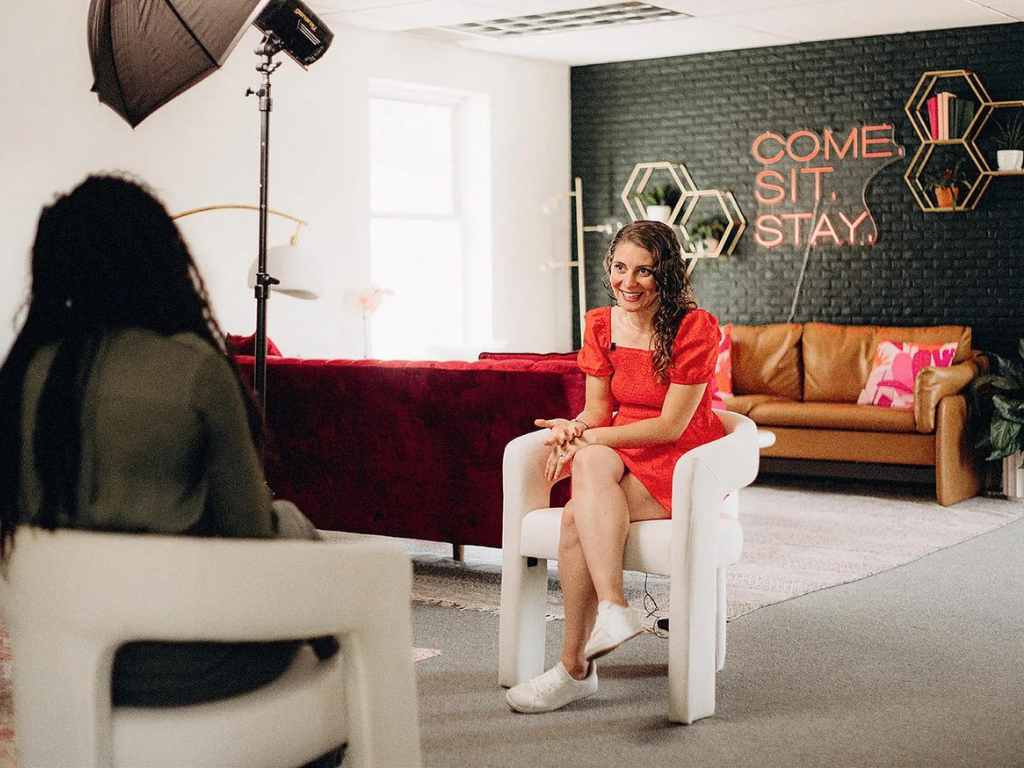
My publishing experience (we’ve written a book proposal with an agent and ghostwriter– and interviewed them for our podcast too) has taught me that:
-
If you know that you want to self-publish or go hybrid, then publish what you want to write as soon as you’d like.
-
The perks to self-publishing are that you have full control and you don’t have inventory. It’s all print-on-demand. You upload it as a digital product. It goes on Amazon or Barnes and Noble and when your audience purchases- they’ll print it.
-
With the hybrid model, think of it like self-publishing but with hiring a VA who knows how to bring the project to life.
-
You own the Intellectual Property, they may put their watermark on it, they may also offer coaching, printing options, getting your ISBN for you- there are so many companies out there now and they all support authors in different ways.
-
-
-
If you’re going the traditional route, then putting your writing out on a platform like Substack or through a podcast is ideal because you have to be careful if you’ve self published before. It changes the dynamic with the content. You can’t use certain things with the publishers if it’s been published before.
-
In my research, the biggest plus for going the publishing house route is for the credibility/weight behind their names. You also do get an editor and some marketing support- but apparently it’s not like how it was. They do pay you a bit up front and you keep the copyright but they have the publishing right.
-
Substack for Book Publishing + Podcasting
That’s where I think Substack is so cool- if you’re not quite sure which way you want to go, you can still get your thoughts out there (in written, audio, video or a combo of them all) and have that forward momentum, which can be printed either route you go.
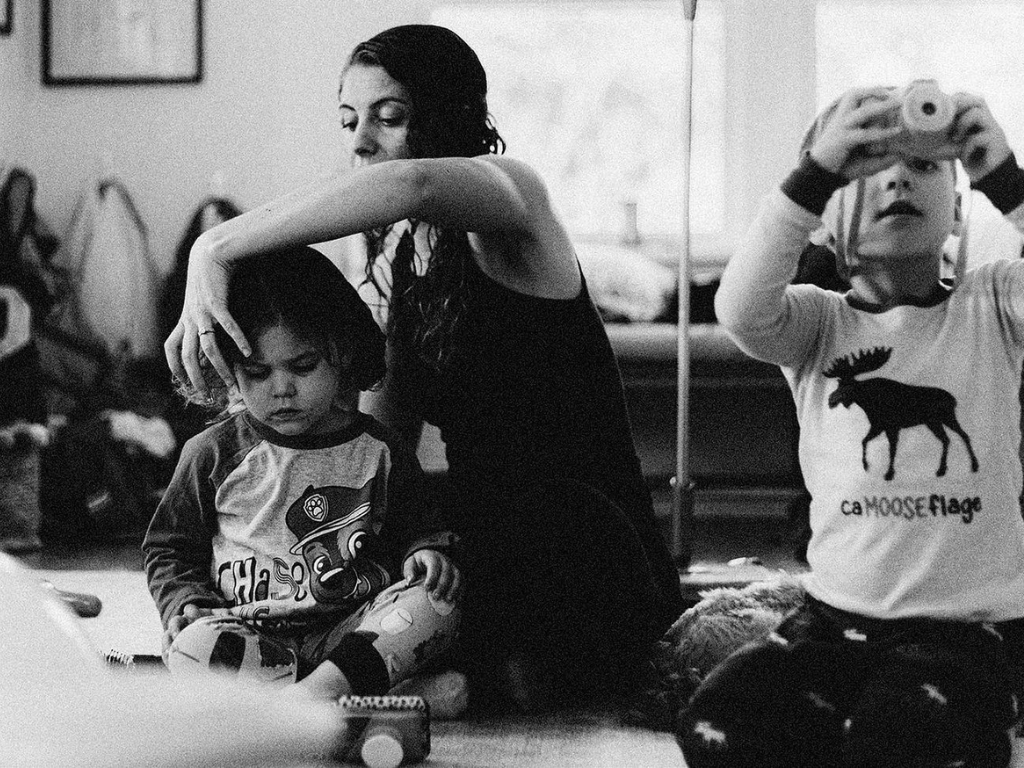
Yes! It’s a place about practicing the habits. How do you even describe your author bio? That can take people months to commit to. If you create your author bio on Substack, it’s done! Right?
And then, you have to create an intro post. How do you introduce yourself to the world? Creating a space, whether it is a published book, a self-published one, or something that is online that creates a presence and a brand, doing that repeatedly, for sure, is a practice if you think writing a book is ultimately part of your true bucket list.
Another reason we’re both going all in on Substack, is because we want to create without restriction. We’ve found that trying to just use social media at this point starts you at a tough spot because you’re creating content that you’re dependent on this algorithm to put out for you.
And again, I think for an author, the combination with podcasting and Substack is just so brilliant.
How Podcasting Supports Writing a Book
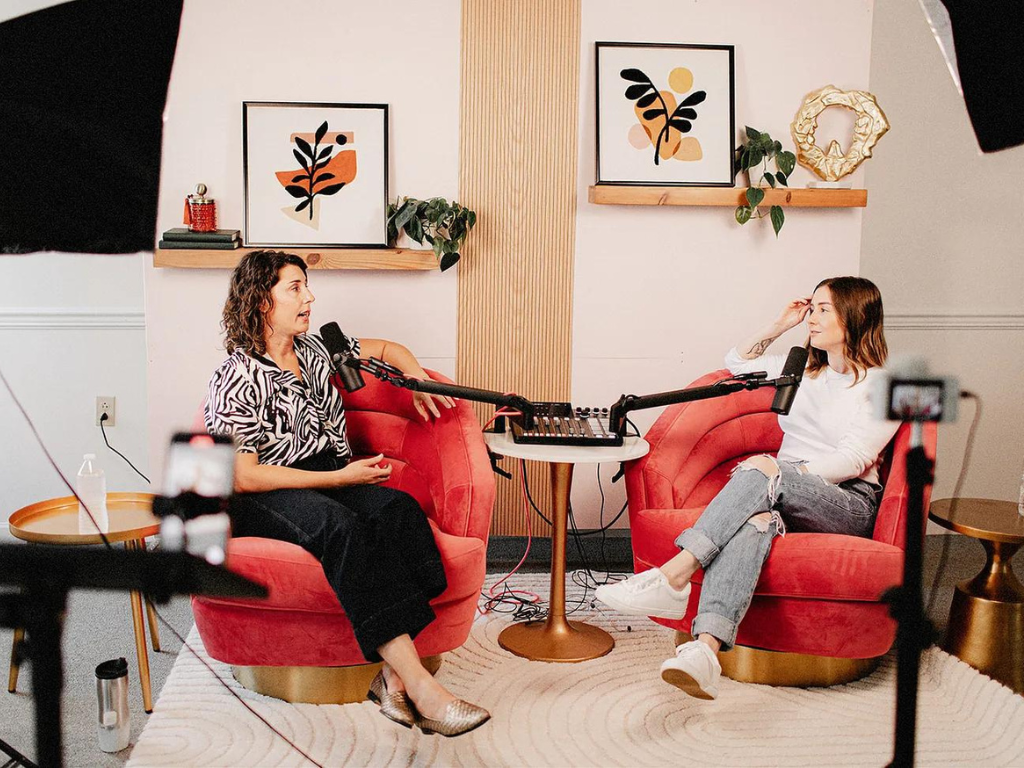
So good. When authors can find conversational podcasts like this, it really allows them to practice, practice, practice. Practice how they describe themselves as an author and how they describe their book. Then they can listen to it, take the one or two lines from it that are really good and use it moving forward in their marketing.
Which is another thing I learned about the publishing space. You have to do your own marketing regardless of which path you take.
Just cause it’s on Amazon or Barnes and Noble doesn’t mean it’s going to make sales. It really does require a level of boots on the ground no matter which publishing route you go.
Our client, had this woman on her podcast who recently put out a book with a publishing house and it was her 60th podcast interview in the last 30ish days.
Another friend of mine had Jenna Kutcher on her podcast when she was launching her book- that’s the way most authors are “touring” now post Covid.
At the end of the day, just like in business, it requires a sustainable marketing plan. So give yourself space and know that it’s something you’re going to continue to talk about for years and years to come…. As a slow living, feminine business owner- that feels like a relief and also shows me how great podcasting is whether you start your own or guest on others.
Podcasting is not only a huge bonus because you’ve been practicing and most of your book is probably written- you just take the transcripts and start organizing them. But also because you’ve built a community to market it to when it’s done. (Which is also a big plus if you do decide on the traditional publishing route.)
I frequently get pitch emails from authors to be on the podcast to talk about their books and honestly, I’ve never taken those submissions. But I do connect with people who authentically reach out to me where I’m at (i.e. it used to be a lot on Instagram and now I mostly live on Substack.)
Reaching out to chat without an agenda because we have someone or something in common, in addition to motherhood and business life. And after growing that friendship if they asked to be on or to collab, I would be more than willing if everything else felt in alignment.
I teach my clients this and I’m very much about this too: my space is sacred. A podcast season is typically about 12 episodes over a three month period. Which means I have less than 12 slots for guests. So it’s really important to me that our conversation is electric and very much in alignment for myself and my audience. And very much in alignment typically means that the person is my friend.
It’s my fangirl theory. I want to connect and be on other people’s podcasts, collaborate with and even when I’m commenting, only if I’m a fangirl of them. Because collaboration, in my opinion, and all of this type of connection is truly just relationship building and friendship building. And what a better conversation to have than with someone you jive with?

When you have that approach, it just changes the lens of how you show up in everything, right?
The online space has confused us a lot. We forget some of the things that you would do if you met somebody in real life or pass them on the street.
If you were at an in-person networking event you wouldn’t just walk up to somebody and say nothing else except: “Hi, I have a book, you have a podcast, can I be on it?” That would be so uncomfortable. But that’s like what people are doing in the online space- the spray and pray method.
And so instead, I really like to bring the friendship and connection back to the forefront. So for authors looking to get on podcasts you can let it be easy:
Drop the media kits and cold emails
Connect with people on your preferred platform as friends, without an agenda
And as you chat you can offer ways you can collab and support their audience with what you do
We’re all our own little media companies now which means we need content but we also have a specific way we come about that content. And the cool thing is, when you connect with the “right” people, the fan girl people, it’s a snowball effect. All of us podcasters know each other so once you’re connected with one of us, and you have a really great conversation, we start sharing you with our friends.
How podcasting clarifies your message/writing

You typically hear podcasts are great because of the intimacy factor with your listeners. That you’re literally in their earbuds and they really get to hear you and connect with you in a way that they can’t on other platforms.
Yeah, it’s a really good point. Imagine you know you’re a good writer, have a good message and know how to put it together but are sometimes staring at a blank page.
And then you start wading into the imposter syndrome waters, thinking- maybe this word should be in this chapter instead, I have to move it over here and tweak this last piece for the umpteenth time.

Versus if people could find a way even before they did their books, to come on to podcasts like this and have conversations, there’s nothing better than having someone on the other side of the screen, making a positive face and having a reaction and you’re like, oh, well now I want to keep talking because what I’m saying is resonating with someone over there.
Many people who go to create a book, are just staring at their screen, hoping that something genius comes out and someday, somebody sees it. That’s difficult.
Writers vs. Talkers
It is. Yeah. And it’s so funny because, where most of your audience and listeners are writers first and so podcasting feels a little bit scary and out of their comfort zone.

For me, audio and podcasting is so much easier. What would take me literally five hours to write takes me 15 minutes to speak into the mic. And so an interesting thing that Substack has allowed me to do more quickly, in this new process we’re doing with our clients too, is:
I will sit down
Record whatever I feel called to (honestly, a lot of the times it’s me journaling while the kids are playing and I have a second to brain dump what’s in my head. I call it live journaling. Then I look back, like, Oh, this was an interesting conversation I had with myself. And I record it on the mic.)
Then I take the transcription of that and put it in Substack and simply edit it to read like a blog. (Exhibit A- literally what you’re reading here… meta I know!)
It makes my writing easier and more conversational because I get too edit crazy if I start from scratch- rewriting every word 10 times. I’m a nightmare in that space.🤣
I’ve actually found I’m reading more than I’m listening to content these days. But it’s nice to have both because sometimes I might be doing the dishes or running around and I want to pop an earphone in.
I’ve recently written a post about this of: if you’re the opposite, if you’re a writer first, then take all that amazing writing that you’ve done, and just get behind the mic and speak it so that it’s accessible to people in both ways, you know?
This is really exciting because there is just so much intersection between the two. Whether you write first and speak second, or vice versa, these two mediums really go hand and hand. So by taking the first step, to share your message in an aligned way with aligned people, you’ll be creating both of these bucket list projects: Publishing + Podcasting, in one fell swoop.
Did you love this post? Save it for later!



